Free French lesson : the word ‘EN’
This week we are back with a new free French video lesson on our Youtube channel with Patrice and you will learn about the word EN.
We certainly have all the same struggles with always the same small words in French, who always come back and have other meanings.
Today we are going to talk about the word EN
This is both a preposition before a thing, place.
It is a neutral personal pronoun
And we can use it when you want to form a gerondif in the present tense.
-
« EN » as a preposition
Preposition of a location : we are going to find « en » before countries or feminin regions or words starting with a vowel or certain verbs like to live, to travel, to work.
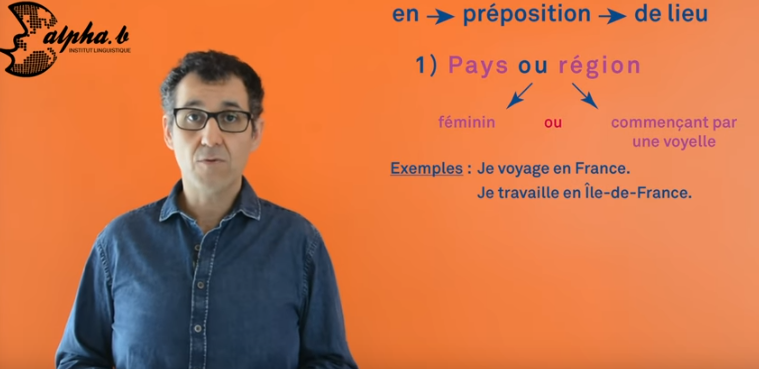
Je voyage en France
I travel in France
Je travaille en Île de France
I work in Île de France
We find the prepostion « EN » before all the continents : Africa, America, Asia, Antartic, Europe and Oceania.
Also before public places :
J’habite en banlieue mais je travaille en ville.
I work in banlieue but I work in the city.
Je vais souvent en montagne le week-end.
In the weekend, I go often in the mountains.
Time preposition
Before a year, a month :

Nadia a obtenu son diplôme en 2016 et a trouvé son premier emploi en Janvier 2017.
Nadia got her diploma in 2016 and found her first job in January 2017.
Before a time union :
Cette année, les étudiants vont avoir deux examens en cours de semestre.
This year, the student will have 2 tests during the semester.
When we want to complete an entire action during a certain amount of time, we use EN.
Markus a appris le français en 3 mois.
Markus has learnt French within 3 months.
Nous voyageons maintenant de Paris à Nice en 4h30 par TGV.
Right now, we travail from Paris to Nice in 4h30 with the TGV.
- Preposition of a way of doing something

To express a movement in a closed means of locomotion in which we enter.
Je voyage en voiture
I travel by car
To express a way how we dress for a specific occasion :
Jeanne dort en pyjama. Je donne mes leçons en chemise.
Jeanne is sleeping in pyjamas. I teach my classes in a shirt.
To express the material from which an object is made :
Une montre en or, une chaise en bois
A golden watch , a wooden chair
-
EN as a complement pronoun
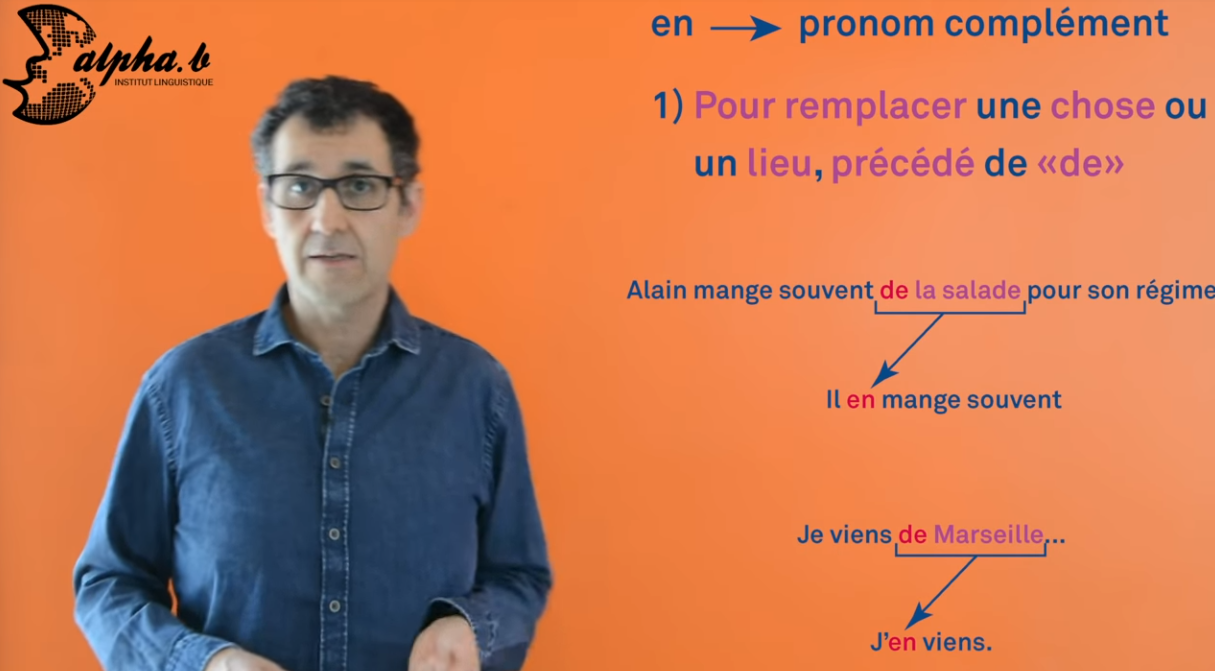
When you want to replace a thing or a place preceded by the preposition « de » you could use the pronoun « EN ».
This is not a preposition it’s a pronoun that aims to replace a name.
Alain mange souvent de la salade pour son régime -> Il en mange souvent.
Alain often eats salad for his diet -> he eats it often.
Je viens de Marseille qui est une ville merveilleuse -> j’en viens.
I come from Marseille which a wonderful city -> I come from there.
« EN » is also used to replace the names preceded by « un » or « une » or number, quantity items.
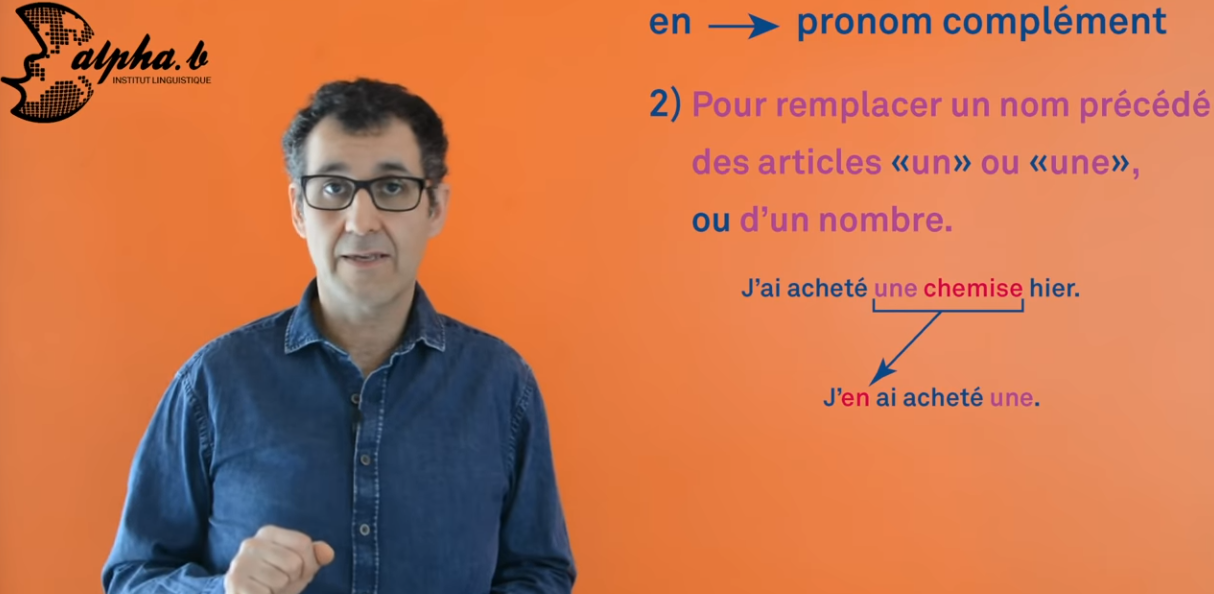
J’ai acheté une chemise hier -> J’en ai acheté une
I bought a shirt yesterday -> I bought one
Pay well attention to re-using the article « un » the precise the quantity.
J’ai acheté deux chemises -> J’en ai acheté deux.
I bought two shirts -> I bought two.
-
EN to form a « gérondif »
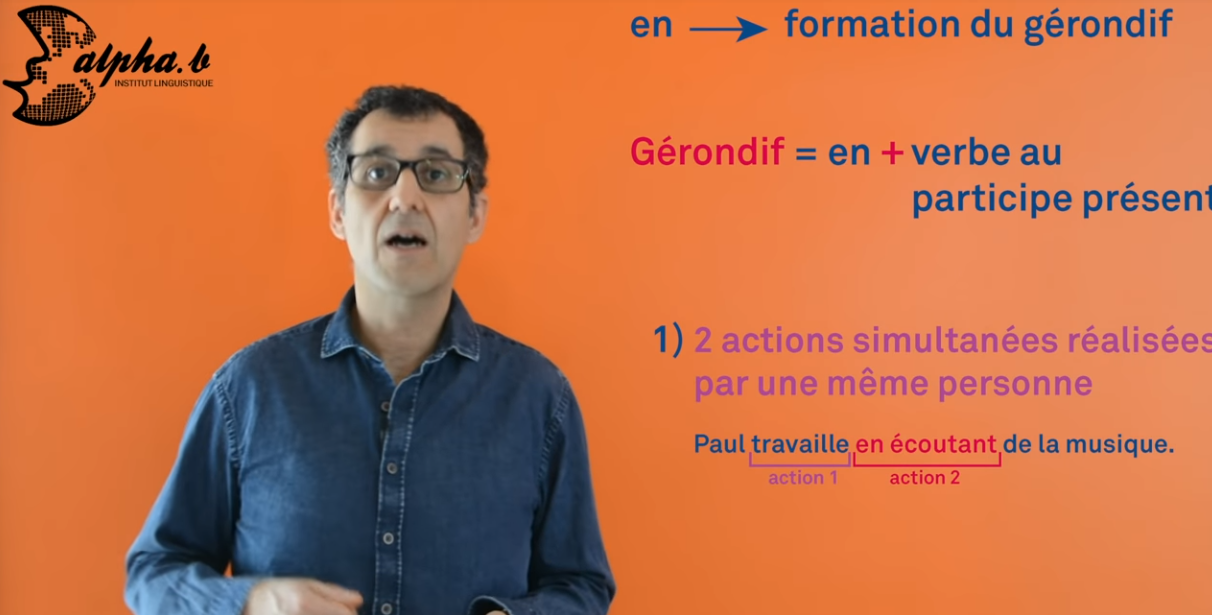
EN + verb in the present participle.
The « gérondif » is as way to express two concurrent actions performed by the same person.
Paul travaille en écoutant de la musique = il travaille et en même temps il écoute de la musique.
Paul works while listening to music = he works and at the same time he listens to music.
The gérondif expresses also a cause that leads to a consequence.

Je me suis fait mal en tombant = je me suis fait mal pourquoi ? Parce que je suis tombé.
I hurt myself falling = Why did I hurt myself ? Because I fell.
The gérondif expresses a condition.

En sortant plus tôt, tu attraperas le bus = Si tu sors plutôt tu attraperas le bus.
When leaving earlier, you’ll catch the bus = If you go out earlier, you’ll catch the bus.
So you can express with the « gérondif » a simultaneity, a cause or a condtition.
You could see that the same little word can have several meanings.
Please find more lessons on our blog.

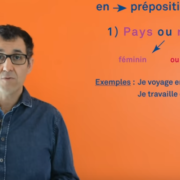



Laisser un commentaire
Rejoindre la discussion?N’hésitez pas à contribuer !